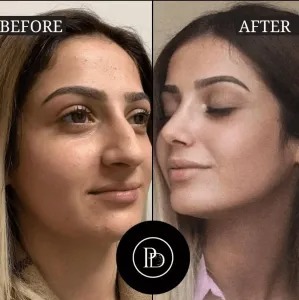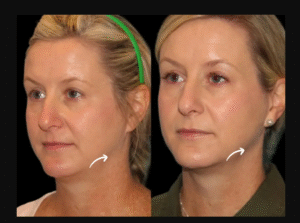
Glaucoma, sometimes referred to as the “silent thief of sight,” is a collection of eye conditions that progressively harm the optic nerve, resulting in irreversible vision loss if treatment is not received. Although the mainstay of glaucoma treatment consists of pharmacological and surgical procedures such as eye drops, laser therapy, and surgery, there is increasing interest in the potential impact that lifestyle changes may play in delaying the advancement of the condition.
Can altering one’s lifestyle actually help manage glaucoma? Let’s examine the findings of the research and the behaviors that may have an impact.
Understanding Glaucoma
Over time, elevated intraocular pressure (IOP) destroys the visual nerve, leading to glaucoma. Normal-tension glaucoma, on the other hand, can occur in some persons with normal ocular pressure, suggesting that heredity, oxidative stress, and vascular flow are additional contributing variables.
The main problem with glaucoma is that it develops in silence. Most individuals don’t experience any symptoms until they have lost a considerable amount of their eyesight. Early diagnosis and ongoing care are therefore essential. Lifestyle variables may supplement glaucoma treatment and perhaps promote the health of the optic nerve, even while medications and procedures lower intraocular pressure.
The Function of Lifestyle in the Treatment of Glaucoma
According to new research, some lifestyle changes may improve eye health and reduce the growth of glaucoma. These adjustments can be beneficial supplements to a comprehensive strategy, but they should not be used in place of recommended treatment.
1. Engage in regular, safe exercise
Walking, swimming, and cycling are examples of moderate aerobic exercise that has been demonstrated to reduce intraocular pressure and enhance blood flow to the optic nerve. At least three to five times a week, try to get in 30 minutes of exercise.
IOP can, however, momentarily rise with some exercises, such as vigorous weightlifting or headstand-based yoga poses. Before starting or changing their exercise regimens, persons with glaucoma should speak with their eye doctor in OMR.
2. Consume a Diet High in Nutrients
Overall eye health is supported by a diet rich in vitamins, minerals, and antioxidants. Particularly helpful nutrients include zinc, omega-3 fatty acids, vitamin C, vitamin E, and carotenoids (such as lutein and zeaxanthin).
Add foods such as:
- Leafy greens, such as kale and spinach
- Brightly colored veggies, such as bell peppers and carrots
- Omega-3-rich fish (salmon, sardines)
- Nuts and seeds
- Berries and citrus fruits
These foods help fight oxidative stress, which can contribute to optic nerve damage.
3. Control diabetes and blood pressure
Both diabetes and high blood pressure are associated with a higher risk of optic nerve injury and glaucoma. These hazards can be decreased by maintaining appropriate blood pressure and blood sugar levels by medication, food, and lifestyle modifications.
In normal-tension glaucoma, low blood pressure, particularly at night, can also impact optic nerve perfusion. In order to prevent excessively aggressive blood pressure lowering, patients should collaborate closely with their doctors.
4. Drink Plenty of Water, But Don’t Drink Too Much at Once
Blood flow to the eyes can be impacted by dehydration, and consuming a lot of water quickly (more than 1 liter in 15 to 20 minutes) might momentarily increase intraocular pressure. Drink water throughout the day as opposed to guzzling it all at once.
5. Limit alcohol intake and abstain from smoking.
Smoking damages blood vessels, especially those supplying the optic nerve, and raises oxidative stress. Damage to the optic nerve has also been connected to excessive alcohol consumption. Moderate alcohol consumption and smoking cessation can enhance general eye health.
6. Get Restful Sleep
Glaucoma advancement is linked to sleep disorders such as sleep apnea. Sleep deprivation can alter oxygen delivery and impact blood pressure. It might be worthwhile to have a sleep study done and, if necessary, to seek therapy if you have trouble sleeping or snore a lot.
Using a wedge cushion to raise your head a little as you sleep may also help lower your intraocular pressure at night.
7. Set Screen Time Limits and Stress Management
Excessive screen time can lead to eye strain and weariness, but it does not immediately cause glaucoma. Blood flow and the regulation of ocular pressure may be impacted by prolonged stress. To effectively manage stress, engage in relaxation practices like yoga, mindfulness meditation, or deep breathing.
What Changes in Lifestyle Cannot Do to Control Glaucoma ?
It’s critical to realize that while lifestyle modifications might support glaucoma therapy, they cannot take its place. There are tried-and-true ways to reduce IOP and protect eyesight, including eye medications, laser treatments, and surgery.
Irreversible visual loss and uncontrolled disease might result from forgoing prescription medications in favor of alternative treatments or lifestyle modifications. Prior to making any major adjustments to your routine, always get advice from your eye hospital in Taramani.
Concluding remarks
Although glaucoma cannot be cured, it can be effectively controlled with a mix of medication and healthy lifestyle choices. Patients can be empowered to actively protect their vision by attentive daily practices, treatment plan adherence, and routine check-ups.
Consider changing your way of life as an eye support system. By adopting a healthier lifestyle, you’re enhancing your general wellbeing in addition as taking care of your eyesight.
After all, one of our most valuable senses is sight. It is worth every effort to protect.






